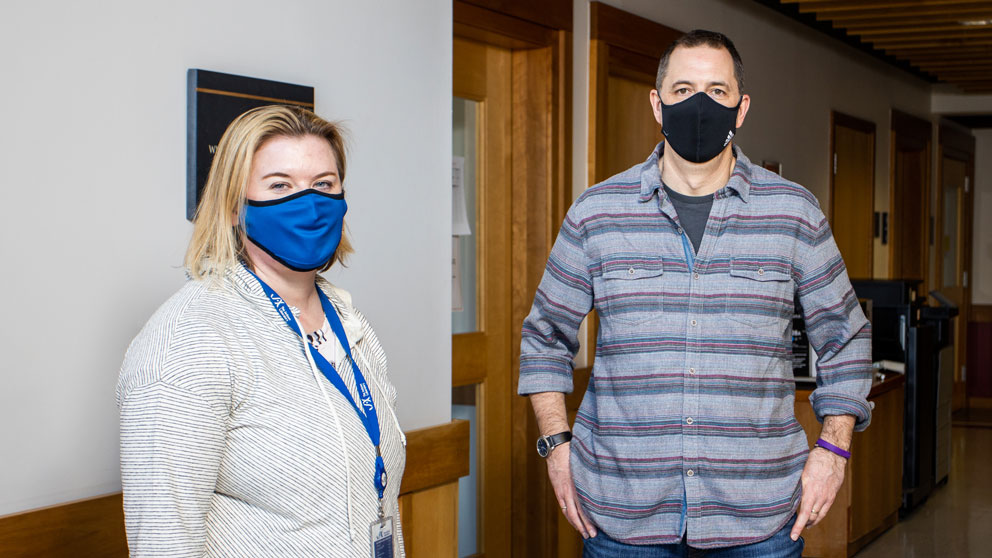
The Alzheimer's Association is pleased to award a grant to Jackson Laboratory researchers, Gareth Howell, Ph.D. and Kristen Onos, Ph.D., for their work deciphering microglial responses to amyloid and tau with wild-derived mice.
Wild-derived mice are different from typical laboratory strains as they are caught in the wild in different parts of the world and then inbred in the lab. These strains are emerging to be better models of the natural genetic diversity that likely plays a significant role in complex disease such as Alzheimer’s disease (AD).
The $298,000 award was made through the AD Strategic Fund: Neuroimmune Funding Program. The Alzheimer’s Strategic Fund supports innovative, high risk, team science opportunities that investigate and focus on outstanding questions related to the biological underpinnings of Alzheimer’s disease.
Although many advances have been made in Alzheimer’s research in recent years, the field still faces gaps in knowledge and ability to translate basic science discoveries into effective treatments and evidence-based clinical practices for dementia care.
“This grant will allow us to combine a number of exciting new approaches in the modeling of AD in mice including genetic diversity and natural genetic variation using CRISPR, to introduce humanized genes and the introduction of human-patient derived proteins,” said Dr. Onos. “The goal is to enhance our preclinical mouse models so that they can be translated to the clinic.”
Gareth Howell, Ph.D.Applies genetics and genomics approaches to study age-related neurodegeneration associated with Alzheimer’s disease, dementia and glaucoma.Dr. Howell added that he is excited “we are demonstrating to the field of the importance of these strains to decipher the underlying mechanisms of Alzheimer’s and related dementias.”
The Alzheimer’s Association is the largest non-profit funder of Alzheimer’s research. Currently, the Association is investing over $208 million in 590 active best-of-field projects in 31 countries. The Association funds investigations across the spectrum of dementia science, including projects that advance our understanding of Alzheimer's disease, identify new treatment strategies, improve care and support for people with dementia and their families, and further our knowledge of brain health and disease prevention.
“The 2021 Alzheimer’s Disease Facts and Figures report released earlier this month shows that Alzheimer’s disease and other dementias continue to be a significant burden for Mainers,” says Drew Wyman, executive director, Alzheimer’s Association, Maine Chapter. “In addition to the extreme emotional challenges, in 2020 Alzheimer’s disease cost MaineCare over $212 million dollars. This is why we are working toward advancing new treatments that can stop or slow the progression of the disease.”
Currently, more than 29,000 people in Maine are living with Alzheimer’s disease, and over 46,000 caregivers are providing 68,000,000 hours in unpaid care valued at over $1,378,000,000.
About the Alzheimer's Association
The Alzheimer’s Association leads the way to end Alzheimer’s and all other dementia – by accelerating global research, driving risk reduction and early detection, and maximizing quality care and support. Our vision is a world without Alzheimer's and all other dementia. For more information, visit alz.org or call the 24/7 Helpline at 800.272.3900.